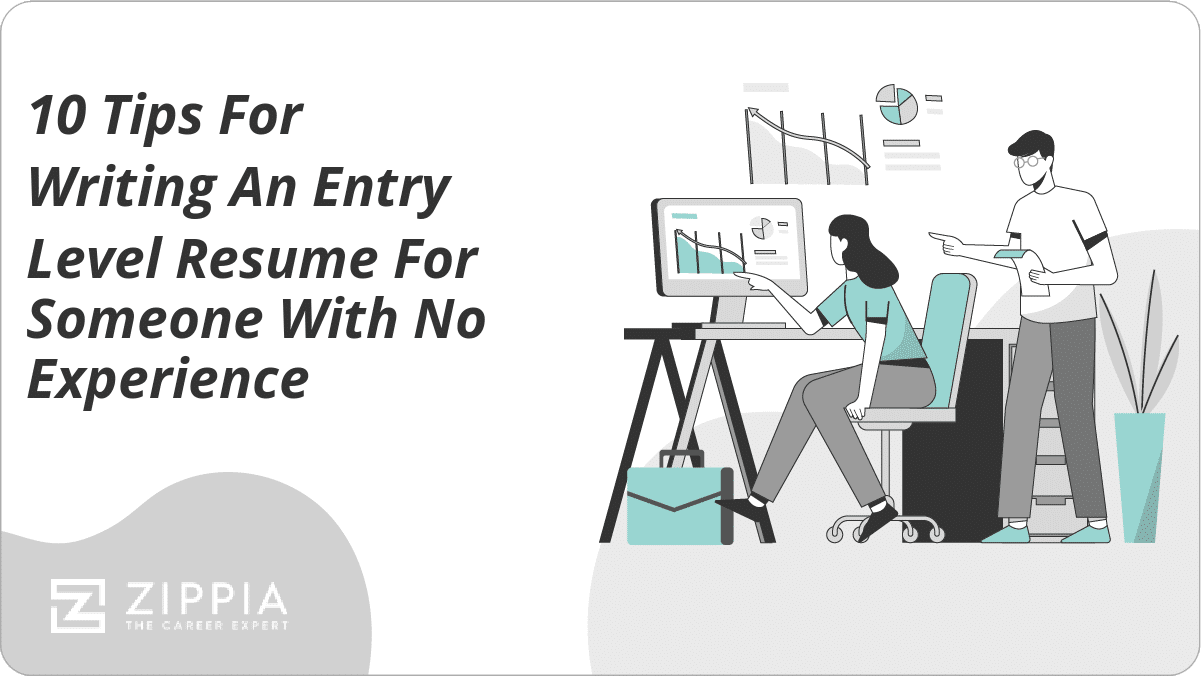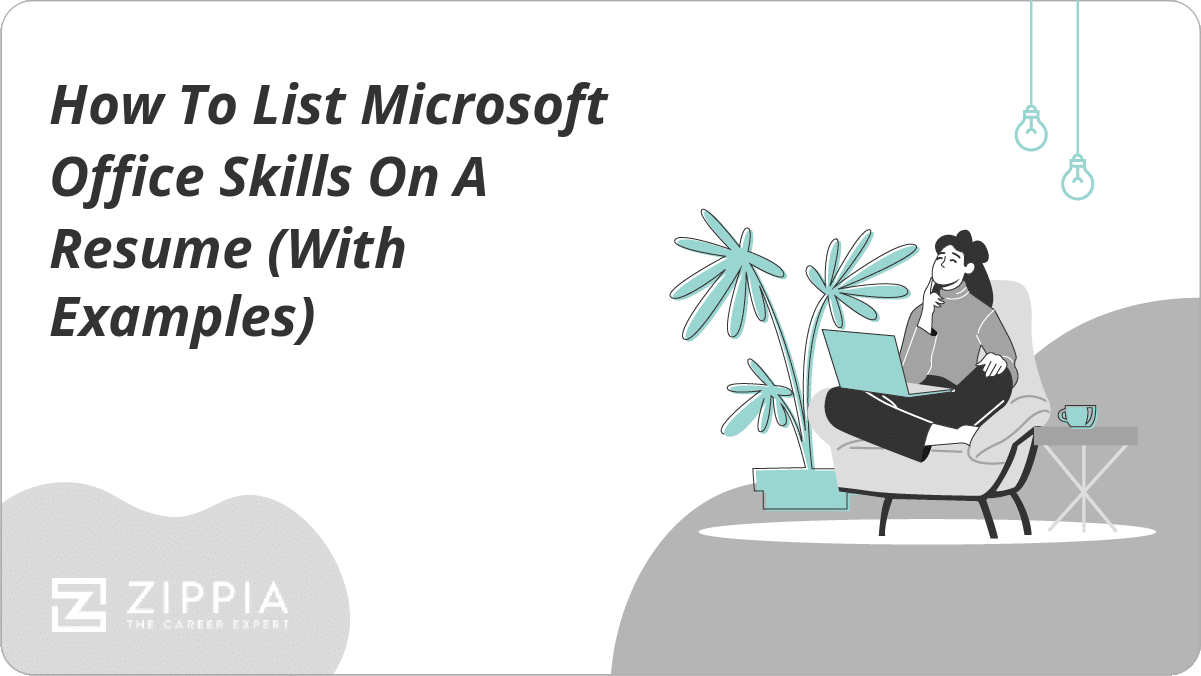- How To Write A Resume
- Resume Examples
- Resume Tips
- Resume Tips
- Best Resume Writing Services
- Things To Avoid On A Resume
- Resume Paper To Use
- What To Include In A Resume
- How To Write A Bio
- How To Write A Personal Statement
- Lied on Your Resume?
- Resume PDF
- Avoid Age Discrimination
- Words and Phrases You Shouldn't Include in Your Resume
- How Many Skills Should You List On A Resume
- Send A Resume As A Pdf
- Resume Critique
- Make A Resume Stand Out
- Resume Spelling
- Resume Past Or Present Tense
- How To List Projects On A resume
- Best Resume Action Words
- How To Quantify Your Resume
- Resume Bullet Points
- Are Resume Writers Worth It
- How Many Jobs To List On Resume
- Resume Vs CV
Valuable skills and experience come from more places than just a full-time job. The trick is being able to pick out which of your experiences are the most valuable, figuring out which skills you’ve developed are the most impressive, and making them work for the job you’re applying for. Even better yet — none of this is as hard as it might seem.
Here’s everything you need to know to write an entry-level candidate for someone with no experience and land an interview.
Key Takeaways:
-
Include any form of related experience such as part time jobs, volunteer work, and extracurricular activities.
-
When including education, avoid putting your GPA if it below 3.0.
-
Use an appropriate email when including your contact information and keep contact information out of header.
-
Avoid lying or exaggerating the truth to make it look like you have more experience than you have.

10 Tips for Writing an Entry Level Resume
-
Include any form of related experience. Even if you’ve never had a full-time job before, you still have plenty of other experiences you can draw from. Valuable skills that impress employers can come from all sorts of places, not just a full-time job.
-
Part-time jobs. If you’ve had a part-time job or an internship where you developed important hard or soft skills, go ahead and list it. Turns out these jobs weren’t completely pointless — they’re actually important learning experiences and great stepping stones toward a professional career.
-
Volunteering. Volunteering is a great way to show that you spend your time doing something more important than just playing beer pong or video games. Volunteering is also a valuable experience that can help you develop important skills, so make sure to list it.
-
Civic and youth organizations. If you thought all those years participating in scouts or 4-H programs were just a waste of time, well, you’re wrong. That’s right, your parents made you participate in these organizations for more reasons other than getting you off the couch. If you have limited experience to put on your first resume, these activities will come in handy.
-
Extracurricular activities. If you participated in activities while in school like clubs, student government, or you had a captain or leadership position for a sport, these are great things to include for a resume with limited experience. Make sure to include any achievements or recognition you achieved in these roles.
-
-
Give information about your education. If you’re still a student or if you’re a recent graduate, your education is one of your strongest assets, so make sure to include it on your resume.
-
List the school you went to, the degree you received, and any achievements like Dean’s List, Chancellor’s List, or any other forms of recognition.
-
If you studied abroad or you graduated with a high GPA, include this information. Employers are impressed by recent graduates’ achievements, so it’s important to highlight them on your resume.
Pro Tip: If your GPA is below a 3.0, you might want to leave it out. Otherwise, employers will think that most of your experience is sleeping through important lectures or failing to attend class.
-
-
Use keywords. When you’re reading job listings, take note of the required skills or tasks listed in the job description, and make sure to reflect them in your own skills and experience sections on your resume.
-
Employers typically only spend six seconds looking at a resume, and using these keywords throughout your resume will show hiring managers at a glance that you would be a good fit for the job.
-
Not only that, but larger employers also typically use applicant tracking systems. To get past the computer screening of your resume, keywords are absolutely essential.
-
Read the job description carefully. Highlight the action verbs in one color and the adjectives and skills in a different color. Then, look for ways to honestly incorporate those words to discuss your past experience and accomplishments.
-
-
Always include your contact information. If an employer likes your entry-level resume so much that they want to call you in for an interview, they’re going to need to know how to get in contact with you. And if you forget to put this information on your resume, well, you’re out of luck.
Always include your name, email, phone number, and the city you live in on your resume. To keep everything looking neat and tidy, you can compile all of these things together at the top of the page.
Pro Tip: Make sure you provide a professional-sounding email. Also, never put your contact information in the header of your resume. Some applicant tracking systems can’t read this information, and your resume may be discarded before it even reaches a human reader.
-
Leave out irrelevant information. This is a good rule of thumb for resumes of all types. Remember to only emphasize achievements and skills that show your value as a candidate.
Don’t worry if your resume looks a little light on content. It’s better to have a short resume that’s packed with relevant information than a long resume that includes a bunch of fluff.
For example, if you want to work in renewable energy, your internship working for a solar company is important, but your recognition as the fastest swimmer at summer camp won’t be as valuable. Stick to listing skills and experience that relate to the job.
-
Keep your resume short. An entry-level resume should never exceed one page, which is good news! If this is your first ever resume, you might not have a whole bunch of information to include.
Aim to fill the whole page, but, again, make sure everything you put on your resume can all tie back into the job you’re applying for. If you need to, adjust your margins so that they’re the maximum size of 1 inch.
Also, don’t try to fill your resume up with statements like “References available upon request.” These things go without saying, and there’s really no reason to put them on your resume. If an employer wants to speak with your references, they’ll ask.
-
Proofread and edit. This one is super important. The biggest giveaway that you’re a rookie in the working world is to have a resume filled with typos and grammar mistakes. Plus, it’s just unprofessional and lazy. Employers see a ton of resumes every day, and something as small as a typo could get yours thrown in the trash.
To make sure your resume has a lifespan longer than one second, thoroughly proofread your resume for spelling and grammar errors, inconsistencies in format (like bold, italics, or bullet points).
It might even be worth it to ask a friend or family member to look over it just in case your brain is so fried from the stress of writing a resume that you don’t even notice you spelled your name wrong.
-
Don’t lie on your resume. You should never lie on your resume. No matter how tempting it might be to fluff your resume up with a few little white lies, it’s always a bad idea.
By all means, look for euphemisms and creative ways to include the keywords listed in the job description in your resume. But don’t just make stuff up or embellish your skill set.
Even if you make it through the interviews and land the job, you won’t be able to deliver on the skills you promised in your resume. Plus, if you get caught, you’ll probably get fired. Just don’t do it.
-
Mention any achievements from your previous experience. When you list your experience, go beyond just listing the most important responsibilities you held in that position. Mention any achievements that prove you can add value to what you do.
If you’ve ever won employee of the month, if you increased participation in a club or organization, or if you created a process to increase efficiency at your job, this is all important information for employers to know about you.
-
Include a cover letter. If you want your job application to stand out, you should include a cover letter alongside your resume. Since your resume is light on formal experience, your cover letter gives you the chance to describe your personality and emphasize your enthusiasm for the role.
You should look to contextualize the experience that you do have in your cover letter and use it as a way to flesh out your resume. Think of your resume as answering the who, what, where, when questions, while a cover letter discusses the how and the why. Discuss why you’re excited about the position and how you plan on doing a great job based on your previous accomplishments.
Common Mistakes to Avoid
Here are some common resume mistakes to avoid:
-
Having spelling errors and poor grammar. A potential employer will look at any mistakes and throw your resume right out. Before submitting any resume, you should proof read it. If you are still afraid that there are mistakes, have someone else take a look at it because they may catch any mistakes you missed.
-
Submitting a generic resume. When writing your resume, you want to reread the job description and tailor your resume to fit that job. If you are applying for a swim instructor, a hiring manager isn’t going to want to know about your artistic skills and the mural you painted last year.
-
Not including references. When you don’t have much experience, references are a great way to let a potential employer of your skills. Make sure to include a couple of references, such as coaches, teachers, camp leaders, who can vouch for your skills and experience.
-
Having an inappropriate email. When applying for a job, you will want to create an appropriate email. The funny email you made when you were in middle school will not look professional and could get you skipped when a potential employer is looking through resumes. Make your email your first and last name and add numbers if you need to.
Final Thoughts
Writing your first resume can seem like a daunting, nightmarish experience. It can seem like a nearly impossible challenge to convince someone to hire you when you don’t have any real experience in your industry.
Experience comes from all sorts of places, not just from working a full-time job. Being able to pick out which skills and experiences are valuable to sell yourself to employers is a great way to show that you’re an awesome candidate and land the job.
- How To Write A Resume
- Resume Examples
- Resume Tips
- Resume Tips
- Best Resume Writing Services
- Things To Avoid On A Resume
- Resume Paper To Use
- What To Include In A Resume
- How To Write A Bio
- How To Write A Personal Statement
- Lied on Your Resume?
- Resume PDF
- Avoid Age Discrimination
- Words and Phrases You Shouldn't Include in Your Resume
- How Many Skills Should You List On A Resume
- Send A Resume As A Pdf
- Resume Critique
- Make A Resume Stand Out
- Resume Spelling
- Resume Past Or Present Tense
- How To List Projects On A resume
- Best Resume Action Words
- How To Quantify Your Resume
- Resume Bullet Points
- Are Resume Writers Worth It
- How Many Jobs To List On Resume
- Resume Vs CV





